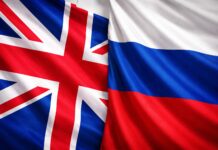In a move that has sparked intense debate at home and abroad, UK Prime Minister Sir Keir Starmer has formally recognised the state of Palestine — a landmark shift in British foreign policy that echoes through the corridors of Westminster, the conflict zones of Gaza, and the broader geopolitical chessboard.
“This is not a reward for Hamas,” Starmer insisted, framing the recognition as a moral imperative to preserve the two-state solution and act against the “intolerable devastation” in Gaza.
But is this historic gesture a genuine push for peace or a politically calculated response to mounting pressure from within his party and international allies?
Recognition or Repercussion?
The announcement comes at a time when Gaza is reeling from a relentless Israeli military campaign, with over 65,000 casualties reported by the Hamas-run health ministry. The international community, including Canada, Australia, and Portugal, joined the UK in recognising Palestinian statehood — a coordinated attempt to revive the dormant two-state dialogue.
Yet critics argue the move could embolden extremist factions. Israeli Prime Minister Netanyahu called it a “reward to terrorism,” while Conservative leader Kemi Badenoch branded it “absolutely disastrous.” For families of the 48 remaining hostages still in Gaza, the recognition feels like salt in an open wound.
The realpolitik underneath the symbolism cannot be ignored. With Labour under increasing scrutiny from its left wing — and disillusionment rising among Muslim and pro-Palestinian voters — Starmer’s recognition could be seen as a calculated rebalancing act, aimed at shoring up electoral integrity.
Legal vs Symbolic — What Does It Actually Change?
Despite headlines, the recognition is largely symbolic. Palestine remains fragmented, with the Palestinian Authority lacking control in both Gaza (ruled by Hamas) and much of the West Bank (dominated by Israeli settlements).
Moreover, recognition over “provisional borders” with no binding framework for enforcement leaves it toothless in practice. UK Deputy PM David Lammy admitted it won’t “feed children” or “free hostages,” but insists it’s a necessary moral stance.
The recognition may pressure Israel to reconsider its settlement expansion, though Netanyahu remains adamant: “We doubled Jewish settlement in Judea and Samaria and will continue on this path.”
From Occupation to Climate Justice: Why It Matters Beyond Borders
While the connection between war and climate change may seem abstract, they are deeply interlinked. Prolonged conflict in Palestine has devastated ecosystems, displaced millions, and left basic services — including clean water, energy, and agriculture — in tatters.
According to UN reports, climate stressors — including water scarcity, desertification, and extreme heat — exacerbate tensions in the Middle East. In Gaza, Israeli control over water and energy has made the enclave deeply vulnerable to climate shocks. Infrastructure destruction and displacement further weaken climate resilience, creating a cycle of vulnerability.
By recognising Palestinian statehood, the UK is not only weighing in on human rights but also acknowledging that climate justice and political justice are intertwined. A sustainable future in the region cannot be achieved while millions remain stateless and disenfranchised.
The Road Ahead: Gesture or Genesis?
Starmer’s move may not rewrite borders overnight, but it signals a new diplomatic posture — one that values multilateral alignment over unilateral allegiance. It places Britain back on the map as a potential peace broker, albeit with limited leverage.
Whether this marks the genesis of renewed peace efforts or a fleeting gesture remains to be seen. But what’s clear is this: recognition must be followed by action — in diplomacy, humanitarian support, and climate cooperation.




